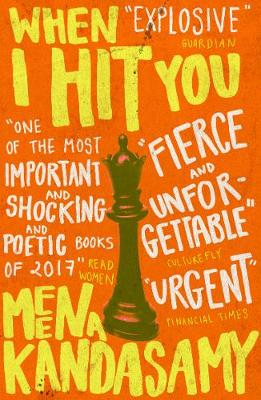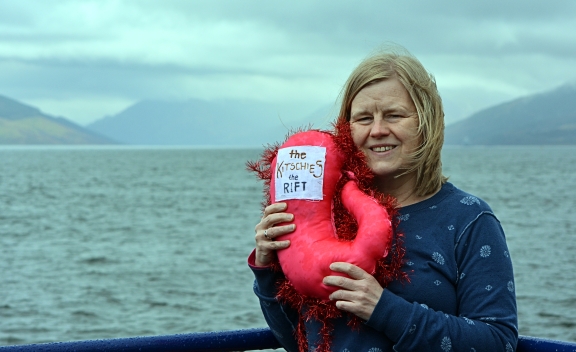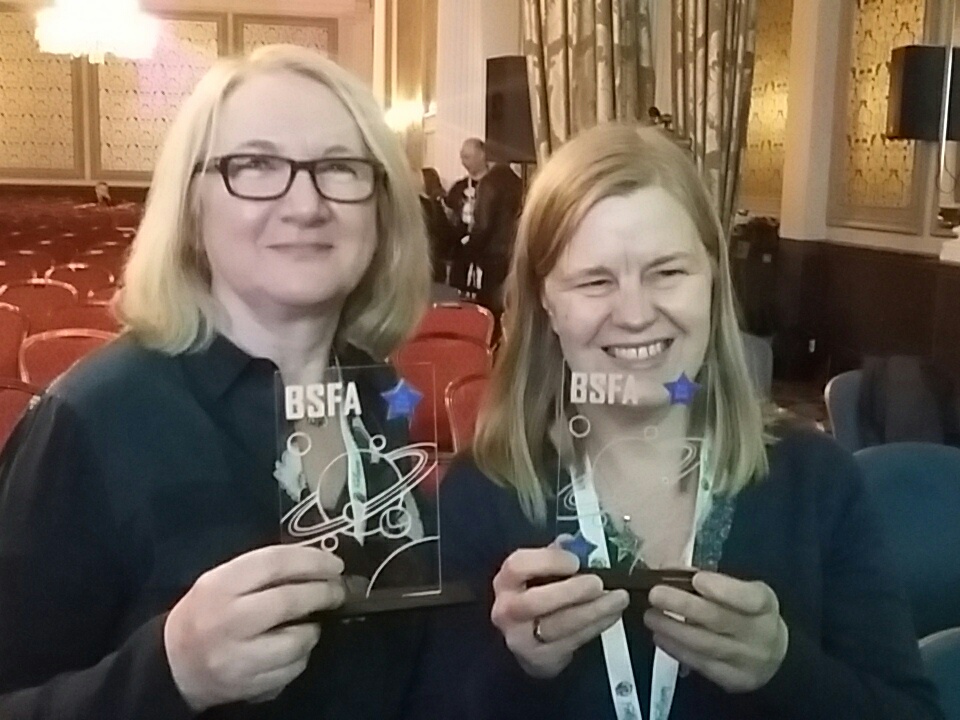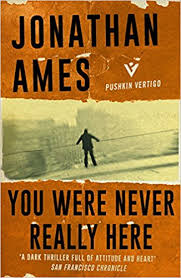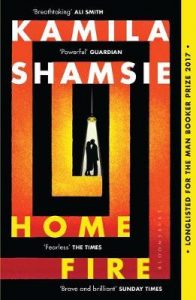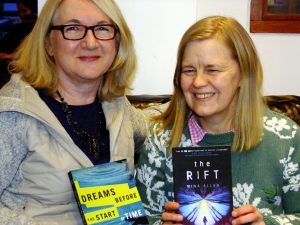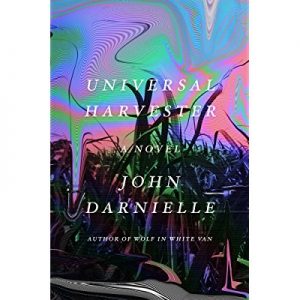 Looking at the average rating for John Darnielle’s second novel Universal Harvester yesterday on Goodreads, I felt kind of heartbroken. But then reader reviews are unpredictable – that’s what’s so fascinating about them – and a solid percentage of how they pan out can be put down to clumsy marketing, Trying to cash in on the thriller market is not usually a good idea if the book you are trying to sell is not a thriller. You piss off the thriller fans, and risk not reaching the novel’s natural audience in the process. More marketing departments should realise this, and come up with more imaginative approaches.
Looking at the average rating for John Darnielle’s second novel Universal Harvester yesterday on Goodreads, I felt kind of heartbroken. But then reader reviews are unpredictable – that’s what’s so fascinating about them – and a solid percentage of how they pan out can be put down to clumsy marketing, Trying to cash in on the thriller market is not usually a good idea if the book you are trying to sell is not a thriller. You piss off the thriller fans, and risk not reaching the novel’s natural audience in the process. More marketing departments should realise this, and come up with more imaginative approaches.
By coincidence, the shortlists for this year’s Shirley Jackson Awards were also published yesterday, and looking through the Best Novel category I felt heartbroken all over again. The Shirley Jackson shortlists are always strong, and this year’s are absolutely no exception. But there was no place for Universal Harvester and as it’s one of the finest pieces of weird fiction I’ve read in recent years, I’m finding it difficult to understand why. I can see that there are logical arguments for excluding it – no supernatural element, no ‘real’ horror, no easily definable weirdness – but then isn’t that the essence of weirdness, that it can’t be easily defined?
Universal Harvester is weird. And it’s fantastic. Reading a novel this well executed always makes my heart clench. If you’re interested in weird Weird fiction, you should seek it out.
*
When he imagined himself all grown up, he saw himself in Nevada, maybe owning a store, or managing a business in Des Moines. If he thought of the future at all, it looked like the present. and so the young, bored Jeremy of the Nothing Happened variation rings false, and I put more stock in the one I see this afternoon, standing behind the counter eating a sandwich, reading through the classified ads in the Des Moines Register, the Jeremy who’s there when Sarah Jane gets back from Collins, throwing herself wildly through the door of Video Hut as though seeking shelter, her eyes wide, her face darting deerlike first to the right, now to the left, the story she brings so fresh with the terror of its insult that she takes over an hour to tell it, like a person who’s saying things out loud to make sure she won’t forget them.
When we first start reading Universal Harvester, we think we can guess what kind of story we are letting ourselves in for. Jeremy Heldt lives with his father Steve in Nevada (with a long first ‘a’), Iowa. He’s twenty-two years old, still clerking at the video rental store where he’s been working since he left school at eighteen. His dad is worried about him, but he’s not the kind of man to interfere, especially when he knows that both of them are still grieving the loss of Jeremy’s mother Linda in a car accident some years before. Jeremy’s OK with his job. He knows he’ll have to move on sometime, only not quite yet. Then a regular customer – all the Video Hut’s clientele are regular customers – brings back a video saying there’s something wrong with it, that someone has recorded something over part of the movie. Not enough to spoil the picture – it’s just five minutes or so – but enough to make her think she should inform the management.
Jeremy takes the video home and watches it through. Strange scenes are revealed. The interior of an old outbuilding, a woman running along the road at night, a bound figure seated in a chair with a pillowcase tied over their head. Jeremy is disturbed, and captivated. The driveway, the outbuilding, look familiar. Could these scenes have been shot locally? He tells his employer, Sarah Jane, about the video, only by then a second customer has reported similar problems. Sarah Jane thinks they should investigate further. Jeremy is inclined towards the belief that it’s best left alone…
The haunted video subgenre has become a staple of horror fiction and film, and its popularity shows no signs of diminishing. The whole ‘Ring’ franchise is based around it. Books like Marisha Pessl’s Night Film and Joel Lane’s The Witnesses are Gone are honourable examples of it. Universal Harvester even namechecks The Blair Witch Project in acknowledgement of it. I am particularly fond of ‘lost film’ stories, and it was definitely this part of the premise that drew me towards Universal Harvester in the first place.
What I found when I read the book was something quite different. The first half of Darnielle’s novel – Jeremy’s day-to-day life in Nevada, the video store, the discovery of the film clips, Sarah Jane going AWOL – really is only the beginning, the receiving end of the mystery, rather than the mystery itself. We then jump-cut to another family, the Samples, living a similar life to the Heldts only forty years earlier. Peter Sample and his five-year-old daughter Lisa live through a similarly devastating loss to that experienced by Steve and Jeremy, when Peter’s wife Irene walks out of her home one day, never to return. The way her absence impacts the lives of her husband and daughter is the real subject of Universal Harvester. The way in which Lisa’s story connects with Jeremy’s will only be understood as the novel reaches its close.
*
Sarah Jane jutted her neck forward a little and narrowed her eyes, trying to get better focus without having to draw nearer; she noticed a few small yellow bodies lazily drifting in and out of the hole. It made the gourd feel heavier in her sight than it had when she’d been imagining robins or nuthatches. Birds nest lightly. She thought about so many wasps crowded into one place, a great throng displacing some small family of two or three birds. She saw the muddy netting of the nest half-blocking the hole, dusty runover from all the activity inside. And she noted, finally, a wet spot at the bottom, a darkening patch almost as big as her hand. Honey? There is no wasp honey. But the gourd had been put there for birds.
Darnielle’s writing is laconic, languorous, his (eventual) plot distinctive and highly personal. Yet the subjects he deals with are universal and vast as the Iowa skyline. The way in which he breaks the fourth wall – an unidentified first person voice interrupting the steady flow of third person narrative – is mysterious and perplexing, leaving us with the feeling of being watched. In many horror stories, this unknown intruder would turn out to be the serial killer, salaciously plotting his next move, salivating over past atrocities, and it is assumed knowledge of this kind that makes these incursions seem sinister when we first start to notice them. The truth, again, turns out to be different and much more interesting. Darnielle’s formal experimentation is of the most skilful kind: subtle and ingenious, deepening the mystery before finally clarifying it, never tipping over into wilful obscurity.
*
If you learn to look hard enough, you can find stories in seemingly impenetrable tableaux. Street scenes. Parking lots. People waiting for a bus.
In its treatment of time and memory, Universal Harvester shares some interesting connectivity with Jon McGregor’s magnificent Reservoir 13. The story is revealed in sideways glances, brief asides. Both these novels – my favourites of the year so far – are concerned at their heart with the dignity, pathos and transcendence of ordinary lives; better, that there is no such thing as ordinary, that in the intricacy of their particular passage through the world, all lives are unique. In its examination of the inherent strangeness of lived experience, the hazy gap at the heart of things where even final revelations do not reveal everything, Universal Harvester is weird to the core. I cannot recommend this beautiful novel highly enough.
